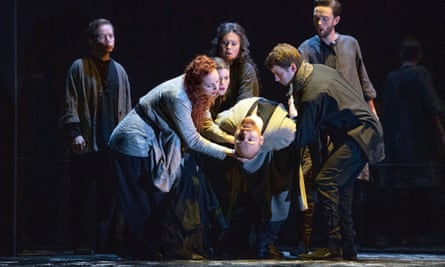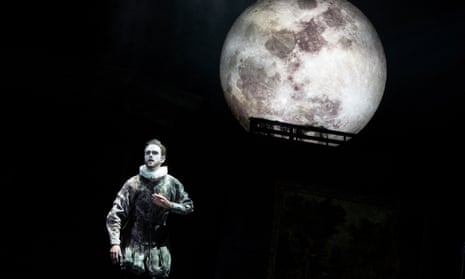Mankind’s relationships with God and destiny is the underlying theme of English Touring Opera’s fascinating if uneven triple bill of 17th-century works, which places Purcell’s Dido and Aeneas alongside Carissimi’s Jonas, based on the biblical book of Jonah, and a sequence of Gesualdo’s vocal works, devised by ETO’s artistic director James Conway and performed under the title I Will Not Speak.
All three are conducted by Jonathan Peter Kenny, though each has a different director, and Jonas, staged by Bernadette Iglich, in many ways comes off best. Carissimi is more interested in his protagonist’s ambiguous attitude to his divine calling than his famous encounter with the whale, and Iglich stages his oratorio as a simple act of communal reflection, in which individuals are drawn together by their experiences of doubt and faith. It is deeply touching and Jorge Navarro Colorado sings Jonas’s great prayer with beauty and sincerity.

Directed as well as devised by Conway, I Will Not Speak proves troublesome, however. Gesualdo is known as much for his notorious murder of his wife and her lover as for his music, and Conway explores the self-lacerating Christianity that informed his work by interweaving his madrigals with recitations from John Donne, Ignatius Loyola and Saint John of the Cross. Guttering candles take us into spiritual darkness at the end, but the effect is at once discursive and curiously static.
Seb Harcombe’s staging of Dido, meanwhile, is pitched somewhere between Jacobean tragedy and expressionist psychodrama and suffers on occasion from uncertainties of tone. Some of it is startling. Dido is depressive and vulnerable, Aeneas diffident and manipulative. The Sorceress’s entourage form a malign mirror image of Dido’s court and may be a product of her own fevered imagination. There are performances of blazing conviction by Sky Ingram’s Dido, Nicholas Mogg’s Aeneas and Frederick Long’s Sorceress. But the neurotic edge that Harcombe confers on the narrative sits uneasily with the score, which encompasses great joy as well as deep sorrow. It is impressive, but not as moving as Dido should be.

Comments (…)
Sign in or create your Guardian account to join the discussion